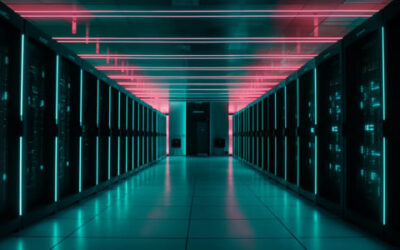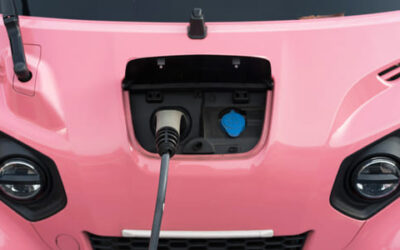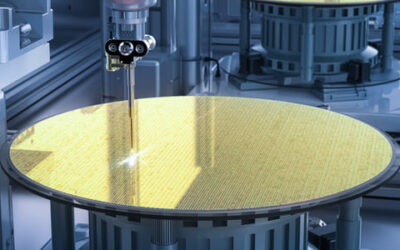How ISO/IEC 17025 Powers Quality and Compliance in the Automotive Industry
In the automotive industry, precision is everything—whether you’re manufacturing parts, assembling vehicles, or testing materials. To ensure product quality and consistency, companies must meet rigorous standards. One cornerstone of this ecosystem is ISO/IEC 17025, the global standard for testing and calibration laboratories. But how exactly does ISO 17025 fit into the broader framework of IATF 16949, VDA requirements, and customer-specific requirements (CSRs)?

What is ISO/IEC 17025?
In today’s global marketplace, the accuracy and reliability of testing and calibration results are essential—especially in fields like manufacturing, healthcare, pharmaceuticals, environmental science, and automotive. That’s where ISO/IEC 17025 comes in. It’s the international standard that sets out the general requirements for the competence of testing and calibration laboratories.
Whether you’re analyzing water samples, calibrating torque wrenches, or testing automotive parts for compliance, ISO/IEC 17025 helps ensure that the data produced is accurate, consistent, and internationally recognized.
Overview of ISO/IEC 17025
ISO/IEC 17025 was first issued in 1999 by the International Organization for Standardization (ISO) in collaboration with the International Electrotechnical Commission (IEC). It has since undergone revisions to stay relevant with evolving industry practices—the latest being the 2017 edition, which introduced a modernized, risk-based approach and a stronger focus on information technologies.
Purpose of ISO/IEC 17025:
- To ensure laboratories are technically competent.
- To enable labs to generate valid results.
- To support international acceptance of test and calibration data.
- To increase confidence in laboratory operations and results.
- To facilitate mutual recognition among accreditation bodies.
Key Elements of ISO/IEC 17025
ISO/IEC 17025 includes two primary categories of requirements:
1. Management Requirements
These are similar to ISO 9001 and cover the operation and effectiveness of the quality management system within the lab.
Key aspects include:
- Document control
- Corrective and preventive actions
- Internal audits
- Management reviews
- Customer communication
2. Technical Requirements
These relate to the competence of the staff, the calibration of equipment, and the testing methods.
Key elements include:
- Staff qualifications and training
- Equipment maintenance and calibration
- Validity of test methods
- Measurement traceability
- Handling of test/calibration items
- Estimation of measurement uncertainty
%
ISO/IEC 17025 Labs in Automotive Supply Chains
More than 70% of Tier 1 automotive suppliers require ISO/IEC 17025-accredited calibration or testing as part of their IATF 16949 compliance. Source: Automotive Industry Action Group (AIAG) – Quality Management Survey, 2022
%
Accreditation-Driven Customer Confidence
According to a 2022 survey by Lab Manager, 91% of industrial clients said ISO/IEC 17025 accreditation increases their trust in a lab’s test results and technical decisions. Source: Lab Manager Magazine – Lab Accreditation Impact Survey 2022
Who Uses ISO/IEC 17025?
ISO/IEC 17025 is applicable to any organization performing laboratory activities, regardless of the number of personnel or the extent of the scope. Typical users include:
- Third-party testing laboratories
- In-house corporate laboratories
- Calibration labs
- Government and regulatory agencies
- Universities and research institutes
- Medical and environmental testing labs
- Automotive, aerospace, and defense industries
Why ISO/IEC 17025 Matters
The benefits of ISO/IEC 17025 extend far beyond just compliance. Here’s why it’s so widely adopted:
✅ Assures Technical Competence
- Demonstrates the lab’s ability to produce accurate and reproducible results.
- Builds trust with clients, regulators, and business partners.
🌍 Promotes Global Trade
- Results from an ISO/IEC 17025-accredited lab are internationally recognized.
- Reduces the need for duplicate testing in different countries.
⚙️ Supports Quality Management Systems
- Complements ISO 9001 and other QMS frameworks.
- Ensures that technical processes are controlled and continuously improved.
🔍 Drives Process Consistency
- Standardizes procedures, documentation, and reporting.
- Reduces variability and human error in testing and calibration.
🔗 Enhances Customer Confidence
- Clients can rely on test data for critical decisions (e.g., product approvals, regulatory submissions).
Accreditation vs. Compliance
It’s important to understand the distinction between compliance with ISO/IEC 17025 and accreditation:
- Compliance means the lab operates according to the standard’s requirements but may not be formally assessed.
- Accreditation means an independent accreditation body has audited the lab and verified that it meets ISO/IEC 17025 standards.
Accreditation bodies (e.g., ILAC members such as A2LA, UKAS, DAkkS, NABL) perform rigorous assessments and issue formal accreditation certificates.
ISO/IEC 17025 in Practice: Real-World Applications
Automotive Industry
- Calibration of measurement tools used in assembly lines.
- Materials testing for durability, emissions, or crash performance.
- Supplier laboratories ensuring compliance with IATF 16949 and OEM-specific standards.
Pharmaceutical Sector
- Validation of drug potency and purity.
- Microbiological testing under GMP conditions.
Environmental Monitoring
- Water and air quality testing in compliance with local regulations.
- Soil and hazardous waste testing to ensure environmental safety.
Aerospace & Defense
- Metallurgical and fatigue testing of aircraft components.
- Nondestructive testing (NDT) calibration and performance validation.
Common Misconceptions
We’re ISO 9001 certified—so we don’t need ISO/IEC 17025.
False. While ISO 9001 covers general quality management, ISO/IEC 17025 specifically addresses technical competency and is the standard required for labs doing testing and calibration.
Only external labs need it.
Not true. Many companies operate in-house labs that must prove competence to internal or external stakeholders — especially in regulated industries.
ISO/IEC 17025 is far more than a regulatory checkbox. It’s a powerful standard that helps laboratories demonstrate technical excellence, reduce risk, and foster customer trust.
By embedding ISO/IEC 17025 principles into everyday operations, labs not only comply — they compete at a global level.
ISO 17025 & IATF 16949: A Strategic Connection
IATF 16949, the standard governing automotive quality management systems (QMS), emphasizes risk-based thinking, defect prevention, and continuous improvement. It does not require ISO 17025 certification explicitly—but it does require that external and internal laboratories used for testing and calibration comply with ISO/IEC 17025.
Here’s how they connect:
- Clause 7.1.5.3.1 of IATF 16949 mandates that calibration services must be either ISO 17025 accredited or demonstrate competence equivalent to the standard.
- For external laboratories, ISO/IEC 17025 accreditation is expected, unless justified otherwise.
- For internal labs, the company must maintain documentation demonstrating ISO 17025 compliance (even without formal accreditation).
So, if you’re using a lab to validate product quality, safety, or performance, IATF wants to ensure that lab is competent — and ISO 17025 is the benchmark.
VDA Requirements: The German Influence
VDA (Verband der Automobilindustrie) guidelines, particularly VDA Volume 5 (related to measurement systems), echo similar expectations around metrology and testing reliability. VDA requires:
- Measurement system analysis (MSA),
- Uncertainty quantification,
- Traceability of measurement results.
Compliance with ISO 17025 complements these expectations by enforcing validated test methods, measurement uncertainty evaluation, and equipment calibration — core themes in VDA.
For German OEMs like BMW, VW, Audi, and Mercedes-Benz, adherence to VDA guidelines alongside IATF is often non-negotiable. ISO 17025 helps suppliers and labs meet this dual expectation.
Customer-Specific Requirements (CSRs): Raising the Bar Further
Major OEMs often introduce CSRs that go beyond IATF and VDA. These may include:
- Specific accredited labs for certain tests,
- Mandatory round-robin testing participation,
- Tighter tolerances for measurement uncertainty.
Examples:
- Ford may require accredited labs for emissions or durability testing.
- GM might mandate ISO 17025-certified calibration for safety-critical components.
- Stellantis could request evidence of inter-laboratory comparisons.
These requirements make ISO 17025 not just a best practice — but often a contractual obligation. Labs without accreditation risk disqualification or increased scrutiny during audits.
Why ISO 17025 Matters in Automotive
Here’s why it’s indispensable:
- Trust in Data – OEMs need to trust that results from a test lab are reliable and reproducible.
- Risk Management – Accurate measurements prevent defective products from reaching customers.
- Audit Readiness – During IATF audits, evidence of ISO 17025 compliance helps avoid findings.
- Global Recognition – ISO 17025-accredited labs are internationally recognized, easing global supply chain integration.
Conclusion
In the race to produce high-quality, reliable, and safe vehicles, the automotive industry can’t afford errors in measurement or testing. ISO/IEC 17025 provides the framework to ensure lab competence, and when aligned with IATF 16949, VDA, and CSRs, it becomes a critical pillar of automotive quality assurance.
For suppliers and labs in the automotive world, embracing ISO 17025 isn’t just about compliance — it’s a strategic move toward trust, quality, and long-term success.
References
- ISO/IEC 17025:2017 Standard Document General requirements for the competence of testing and calibration laboratories. International Organization for Standardization (ISO) / International Electrotechnical Commission (IEC): https://www.iso.org/standard/66912.html
- International Laboratory Accreditation Cooperation (ILAC). Guidelines and policy documents on ISO/IEC 17025 accreditation: https://ilac.org
- IATF 16949:2016 Standard Document. Quality Management System Requirements for Automotive Production and Relevant Service Parts Organizations. International Automotive Task Force (IATF): https://www.iatfglobaloversight.org
- VDA Volume 5: Capability of Measurement Processes. Verband der Automobilindustrie (VDA), Germany: https://www.vda.de
- ISO 9001:2015 Standard Document. Quality management systems – Requirements
- UKAS (United Kingdom Accreditation Service) – https://www.ukas.com
- A2LA (American Association for Laboratory Accreditation) – https://www.a2la.org
- DAkkS (German Accreditation Body) – https://www.dakks.de
- NABL (National Accreditation Board for Testing and Calibration Laboratories, India) – https://www.nabl-india.org
- Automotive OEM Customer-Specific Requirements (CSRs): Ford, GM, Stellantis, BMW, Mercedes-Benz CSRs published in conjunction with IATF 16949 compliance
- NIST (USA) – https://www.nist.gov
- PTB (Germany) – https://www.ptb.de
- NPL (UK) – https://www.npl.co.uk
Wanna know more? Let's dive in!
[dsm_gradient_text gradient_text="The Cobot Conundrum: How AI is Rewriting the Rules of Robot Safety in the Age of Recycling" _builder_version="4.27.5" _module_preset="default" header_font="Questrial|||on|||||" header_text_align="center" header_letter_spacing="5px"...
Newsletter 2
[dsm_gradient_text gradient_text="Ms Matter Newsletter 2026 #1" _builder_version="4.27.4" _module_preset="default" header_font="Questrial|||on|||||" header_text_align="center" header_font_size="36px" header_letter_spacing="5px" filter_hue_rotate="100deg"...
Your AI Ready for the Future? Inside the New AI Maturity Model
[dsm_gradient_text gradient_text="Your AI Ready for the Future? Inside the New AI Maturity Model" _builder_version="4.27.0" _module_preset="default" header_font="Questrial|||on|||||" header_text_align="center" header_letter_spacing="5px" filter_hue_rotate="100deg"...
Cooling the Future: How AI Makes Data Centers Greener
[dsm_gradient_text gradient_text="Cooling the Future: How AI Makes Data Centers Greener" _builder_version="4.27.0" _module_preset="default" header_font="Questrial|||on|||||" header_text_align="center" header_letter_spacing="5px" filter_hue_rotate="100deg"...
When Cars Became Code: How AI is Redefining Automotive Production
[dsm_gradient_text gradient_text="When Cars Became Code: How AI is Redefining Automotive Production" _builder_version="4.27.0" _module_preset="default" header_font="Questrial|||on|||||" header_text_align="center" header_letter_spacing="5px" filter_hue_rotate="100deg"...
Supercharged Smarts: How AI Is Rewiring Electric Vehicle Batteries
[dsm_gradient_text gradient_text="Supercharged Smarts: How AI Is Rewiring Electric Vehicle Batteries" _builder_version="4.27.0" _module_preset="default" header_font="Questrial|||on|||||" header_text_align="center" header_letter_spacing="5px" filter_hue_rotate="100deg"...
New Zealand 2025
Duration: 2 weeks Cities: Christchurch, Hokitika, Kaikōura, Westport, Te Waipounamu, Nelson, Timaru Miles Travelled: 30 000Traveling through parts of New Zealand’s South Island offers a rich tapestry of history, landscape, and local character that leaves a quiet...
Resolving Die Peel Issues in an Automotive & Aerospace Electronics Manufacturing Plant
Background A global electronics manufacturer supplying critical components to the automotive and aerospace industries received multiple customer complaints regarding the premature failure of transistor-based power modules. Field analysis revealed that the root cause...
Transforming a Dysfunctional Quality Team in Automotive and Aerospace Manufacturing
Background The quality department of a Tier-1 manufacturer in the automotive and aerospace sectors was expected to ensure strict compliance to both customer and regulatory standards. Instead, it became a bottleneck plagued by poor collaboration, low morale, and high...
Resolving Customer Complaints Related to Electrical Connector Module Failures
Background ElectroTech, a manufacturer of electrical distribution components, including connector modules for power systems, received a major customer complaint regarding intermittent connection failures in one of its core electric product lines. The failures led to...
Singapore 2019
Duration: 3 days Cities: Singapore Miles Travelled: 6,300Visiting Singapore was like stepping into the future while still being surrounded by rich history and culture. From the moment I arrived at Changi Airport, with its indoor waterfalls and lush gardens, I knew...
Hawaii 2015
Duration: 2 weeks Cities: Honolulu Miles Travelled: 7,000Our trip to Hawaii was truly a once-in-a-lifetime experience, filled with breathtaking landscapes, warm hospitality, and unforgettable moments. We stayed in Honolulu on the island of Oahu, where the vibrant mix...










